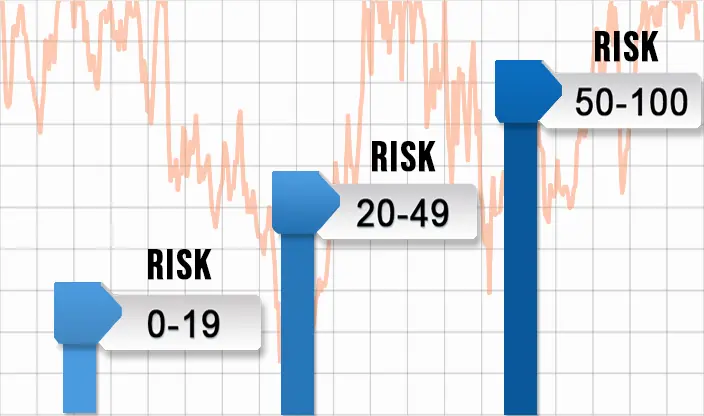Why Average Investors Lose Money in Volatile Markets
Concierge Wealth Services
Why Average Investors Lose Money in Volatile Markets
Many investors believe that long-term markets recover, so timing doesn’t matter. But experience shows that emotional decisions, withdrawals during drawdowns, and forced selling often erode capital in volatile environments—even when market returns are eventually positive.
Common Pitfalls & Behavioral Biases
Emotional reactions—panic selling, chasing performance, overtrading—are among the biggest reasons average investors underperform. When markets decline, fear prompts poorly timed decisions. When markets rally, FOMO drives entry at peaks.
Compounding this, many investors fail to maintain consistent rebalancing or rules-based risk control, allowing risk exposure to drift when volatility is highest.
Withdrawal During Drawdowns
In volatile periods, investors needing liquidity may be forced to sell assets at depressed prices, locking in losses and reducing the portfolio’s ability to recover. Frequent withdrawals exacerbate sequence of returns risk.
Volatility Drag & Path Dependence
Losses are harder to recover than gains of the same percentage (a 20% drop requires 25% gain to break even). In volatile markets, the path of returns matters. Drawdowns early in a timeline can permanently reduce compounding power.
Emotional Trading
Without a documented framework, investors often chase momentum, exit at bottoms, and experience regret cycles. These behaviors compound losses more than any market downturn could.
Rules-Based Frameworks
An anchor in evidence-based processes, risk metrics, and rebalancing rules helps keep discipline intact. That’s where a process-first lens — see institutional-grade portfolio construction — becomes material.
Why This Matters for High-Net-Worth Investors
Large portfolios aren’t immune to emotional drift—or the temptation to swing for the fences. Through Concierge Wealth Services, qualified clients may access independent, disciplined fiduciary frameworks rather than speculative tactics.
If you’re just getting familiar, begin with An Invitation to Explore More for how the introduction process works.
Related Topics to Explore
- Concierge Wealth Services
- Quantitative Risk Management
- Institutional-Grade Portfolio Construction
- An Invitation to Explore More
- Beyond Insurance: Exclusive Wealth Strategies
- What do the Wealthy Invest in Beyond the Stock Market?
Request a Confidential Conversation
📞 Call us at
800-533-5969
Important: We do not provide securities or investment advice. If appropriate, we may introduce you to an independent SEC-registered investment adviser for evaluation under their regulatory framework.
Why Average Investors Lose Money in Volatile Markets — Frequently Asked Questions
Why do emotional decisions hurt returns?
Fear and greed drive ill-timed behavior—selling near lows or buying at peaks—undermining long-term compounding and exacerbating drawdowns.
How do withdrawals in volatility cut deep?
In stressed markets, needing liquidity may force selling at low prices, locking losses and reducing the ability to recover when markets rebound.
What is volatility drag or path dependency?
Because losses require a higher percentage gain to recover, the sequence of returns and return path matter more than arithmetic averages.
Can a rules-based approach reduce this damage?
Yes. A disciplined, evidence-based framework helps keep decision-making consistent and removes emotional drift across cycles.
Can Diversified provide investment strategies?
No. We do not provide securities or investment advice. If applicable, we introduce qualified clients through Concierge Wealth Services to independent advisers.
Important Notice: Wealth management and investment advisory services are provided exclusively through our independent SEC-registered investment adviser partner. Our insurance firm does not offer securities or investment advice.
About the Author:
Jason Stolz, CLTC, CRPC, is a senior insurance and retirement professional with more than two decades of real-world experience helping individuals, families, and business owners protect their income, assets, and long-term financial stability. As a long-time partner of the nationally licensed independent agency Diversified Insurance Brokers, Jason provides trusted guidance across multiple specialties—including fixed and indexed annuities, long-term care planning, personal and business disability insurance, life insurance solutions, and short-term health coverage. Diversified Insurance Brokers maintains active contracts with over 100 highly rated insurance carriers, ensuring clients have access to a broad and competitive marketplace.
His practical, education-first approach has earned recognition in publications such as VoyageATL, highlighting his commitment to financial clarity and client-focused planning. Drawing on deep product knowledge and years of hands-on field experience, Jason helps clients evaluate carriers, compare strategies, and build retirement and protection plans that are both secure and cost-efficient.

